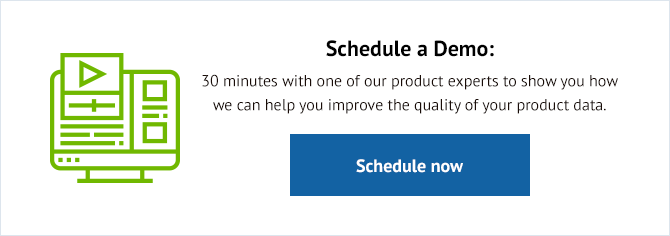The accuracy of your product data determines the ad relevancy for a customer search. In this context, it's not a very good strategy to outsource or delegate to the IT department the most valuable asset of your product advertising campaigns: your product data.
We can give you more than a dozen reasons why feed management is such a crucial component of your product advertising, but let's focus on the most important ones.
eCommerce is Multichannel
Multichannel selling has evolved immensely over the past years. Just a few years ago a multichannel strategy meant having only a brick-and-mortar presence and an online store.
Things got so diverse and complex that we are now looking at an ecommerce multichannel strategy.
Long gone are the times when ecommerce strategy meant focusing only on SEO. According to Hubspot, ''if you rely on free/direct sources of traffic, you are fighting share losses.
Direct has gone from 75% to 9% over the last ten years, while ecommerce has been growing 15-25%.''
Nowadays you need to find a way to seamlessly integrate: direct traffic, paid search, comparison shopping engines, marketplaces, mobile and social media (such as Facebook, Instagram or Snapchat).
That's a lot! Each medium comes with its own peculiarities and strategies, but only by combining all of them you can stay on top of your competition and crush your ecommerce quotas.
The bottom line is that your products should be where your clients are.
The Feed is the Foundation of your Campaigns
When it comes to ecommerce multichannel strategies, your product feed is the foundation of your campaigns and the quality of the data feed will determine its success.
The quality of your feed is what makes or breaks your Product Listing Ads campaigns. When it comes to optimizing your product advertising campaigns, the feed is the first place to start looking for revisions.
Campaign manager = Feed manager
A few years ago, data feed optimization was a complex and technical task. The large retailers that could afford the early data feed tools, would get their own account manager and get help with the complex interface and their feed management.
Today, the ecommerce market is evolving at a staggering pace and campaign managers need to adapt quickly to any change. Therefore the marketing manager wants and needs to manage his own feeds.
There are multiple reasons for the campaign manager to manage his own feeds, instead of leaving them to the agency account manager or the IT department:
- A change may take a developer or agency account manager several days or weeks, while a campaign manager managing his own feeds can do it in 2 minutes
- Trying out new things or doing simple optimizations like custom labels or excluding certain product can be done instantly
- Even if the IT-department delivers perfect feeds, the campaign manager does not see any product level data and is unable to remove unprofitable products
Data Feed Optimization = Continuous
Feed optimization goes hand-in-hand with campaign optimization and is therefore also a continuous process. The basic feed mappings can be set up once, as the feeds for your shopping channels will be updated automatically every day. There are however many things that you can optimize continuously. Examples:
- You need new custom labels all the time, based on your campaign objectives. If you want to bid more for products that are on sale: create a custom label this week
- Exclude all products of a certain brand, that you are negotiating a deal with
- If you want to play around with different titles or descriptions: add multiple versions to your source feed
- Remove unprofitable products from your feeds
- Update your categories if you start selling new product types
The same way you closely monitor your paid campaign performances on a daily or weekly basis, you need to constantly evaluate and improve the feed.
The feed is never done. There is always something you can do to improve your campaign performance!
You may also enjoy: 7 Tips for Google Shopping Feed Optimization
